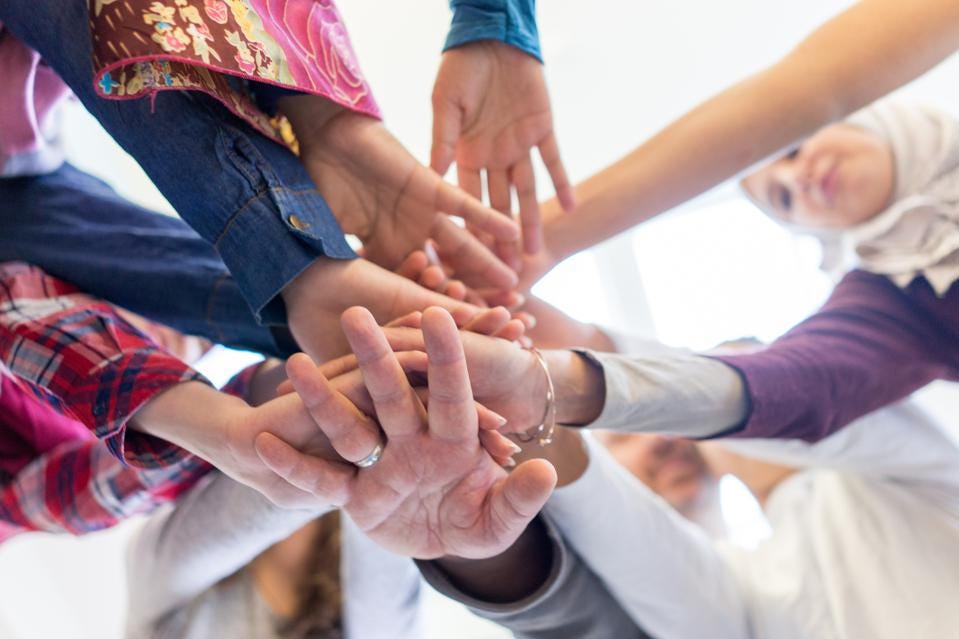In the news and in our day-to-day lives, we see the world wrestling with massive global challenges like climate disasters, health crises and economic inequality. In the search for enduring solutions, an inspiring set of social change makers and entrepreneurs are exploring how powerful technologies—including artificial intelligence (AI)—can be reoriented and redeployed to advance the social good.
Copyright: forbes.com – “Corporations Can Use Artificial Intelligence To Make Positive Social Change”
 In the business realm, AI is having a profound effect on how organizations operate, innovate and grow, granting new efficiencies while unlocking new products and services. These same tools that can be deployed for business benefits may also have the potential to move the needle on some of the world’s most stubborn social challenges.
In the business realm, AI is having a profound effect on how organizations operate, innovate and grow, granting new efficiencies while unlocking new products and services. These same tools that can be deployed for business benefits may also have the potential to move the needle on some of the world’s most stubborn social challenges.
Innovating For The Public Good
The notion of corporate social responsibility is not new. Enterprises benefit when they uplift the communities in which they operate, and there are valuable outcomes for brand reputation as well. There is also a growing appreciation that business sustainability grows out of attention to environmental, social and governance factors. These pro-social approaches to business and community can be aided by looking at how existing AI solutions could be adjusted and redeployed to address a global challenge, like food insecurity, economic inequality, education, access to opportunity and myriad other areas.
There are emerging examples of how organizations are using AI to address ongoing issues. For example, the University of California Berkeley and MIT Press created a website that uses an AI-enabled peer review model to expedite the review and publication of research on infectious diseases. While this single AI application won’t result in the eradication of illness, it remedies a particular challenge—the pace of peer review—which will ultimately improve human efforts toward healthcare overall.
One of the most powerful aspects of machine learning is its capacity to identify patterns and correlations in enormous data sets. The volume of data available to us today eclipses what the human mind can compute, but insights that can generate enormous transformation are often buried. Take the work of the Patrick J. McGovern Foundation. As a part of its efforts, the foundation works with world governments to use AI to understand how specific interventions (e.g., the introduction of a health worker) can improve conditions and well-being within worldwide communities, as well as change their very trajectories.[…]
Read more: www.forbes.com
Thank you for reading this post, don't forget to subscribe to our AI NAVIGATOR!


In the news and in our day-to-day lives, we see the world wrestling with massive global challenges like climate disasters, health crises and economic inequality. In the search for enduring solutions, an inspiring set of social change makers and entrepreneurs are exploring how powerful technologies—including artificial intelligence (AI)—can be reoriented and redeployed to advance the social good.
Copyright: forbes.com – “Corporations Can Use Artificial Intelligence To Make Positive Social Change”
Innovating For The Public Good
The notion of corporate social responsibility is not new. Enterprises benefit when they uplift the communities in which they operate, and there are valuable outcomes for brand reputation as well. There is also a growing appreciation that business sustainability grows out of attention to environmental, social and governance factors. These pro-social approaches to business and community can be aided by looking at how existing AI solutions could be adjusted and redeployed to address a global challenge, like food insecurity, economic inequality, education, access to opportunity and myriad other areas.
There are emerging examples of how organizations are using AI to address ongoing issues. For example, the University of California Berkeley and MIT Press created a website that uses an AI-enabled peer review model to expedite the review and publication of research on infectious diseases. While this single AI application won’t result in the eradication of illness, it remedies a particular challenge—the pace of peer review—which will ultimately improve human efforts toward healthcare overall.
One of the most powerful aspects of machine learning is its capacity to identify patterns and correlations in enormous data sets. The volume of data available to us today eclipses what the human mind can compute, but insights that can generate enormous transformation are often buried. Take the work of the Patrick J. McGovern Foundation. As a part of its efforts, the foundation works with world governments to use AI to understand how specific interventions (e.g., the introduction of a health worker) can improve conditions and well-being within worldwide communities, as well as change their very trajectories.[…]
Read more: www.forbes.com
Thank you for reading this post, don't forget to subscribe to our AI NAVIGATOR!
Share this: